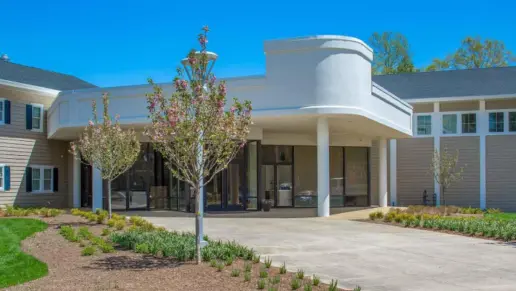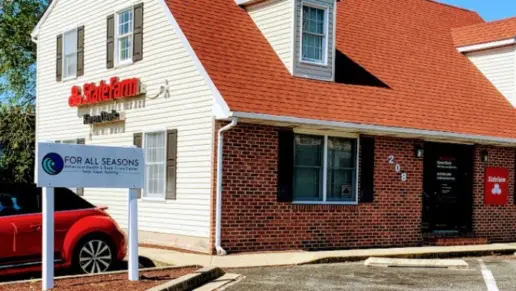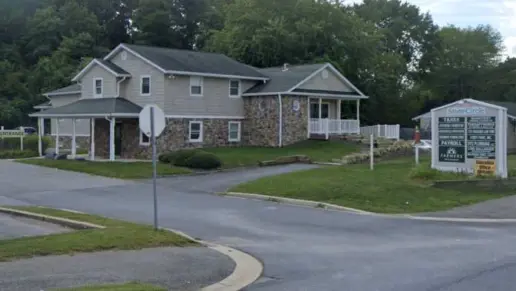The help they provide to the community is impressive, the way they improve the lives of people that don't even get a chance! I'm glad that these people exist.
About Addiction Healing Center at the Westminster Rescue Mission
Addiction Healing Center at the Westminster Rescue Mission provides substance abuse treatment in Westminster, Maryland. It is a CARF accredited facility that offers residential and outpatient care. The center is licensed by the state of Maryland as a Substance Use Disorder Residential and Outpatient Counseling Provider.
The residential program provides a structured setting where guests can focus on recovery without outside distractions. Outpatient treatment can be a step-down program or an appropriate choice for those needing a more flexible treatment option.
Medication assisted treatment (MAT) is available to lessen withdrawal symptoms and reduce drug cravings. They use FDA approved medicines to keep guests more comfortable.
Guests attend individual therapy sessions, which may uncover the root causes of their addiction issues. They can work on developing healthy coping skills, recognizing substance use triggers and learning relapse prevention methods.
Group therapy allows time in a more open atmosphere with others in recovery who may share similar backgrounds and experiences with addiction. They can provide valuable feedback for your recovery and encourage your progress throughout the program.
You’ll attend 12 Step meetings, which help you accept responsibility and accountability for your actions and sobriety. They include like minded people who share the goal of long term recovery.
They include spiritual and recovery education to provide a comprehensive treatment plan. These resources address the spiritual, physical and emotional aspects of healing.
Case management is available to help guide you through the program and connect you to outside agencies or resources for ongoing recovery. Case managers may assist with transportation, healthcare and housing availability.
They offer vocational and job skills training to help prepare you for life after treatment. This service may include options like resume development, job search assistance and interview skills.
Rehab Score
Gallery
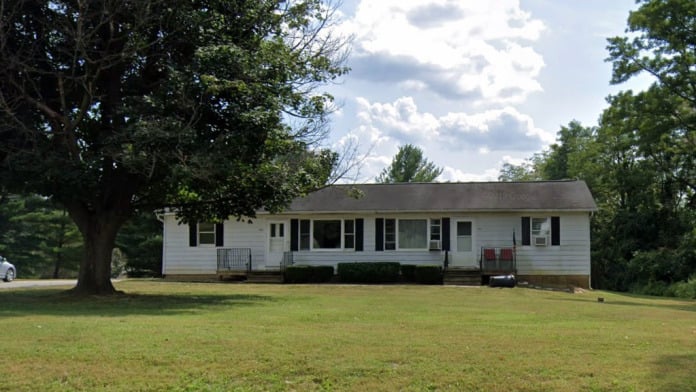
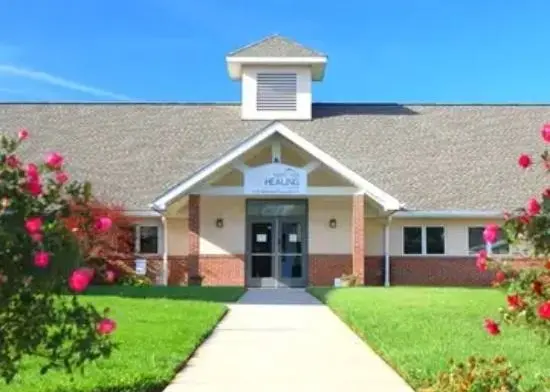
Location
Other Forms of Payment
Self-pay involves paying for treatment out of your own pocket. You can use savings or credit, get a personal loan, or receive help from family and friends to fund your treatment. If you don't have insurance or your insurance plan doesn't cover a specific program, self-pay can help ensure you still get the care you need.
Sliding scale payments are based on a client's income and family size. The goal is to make treatment affordable to everyone. By taking these factors into account, addiction recovery care providers help ensure that your treatment does not become a financial burden to you or your family, eliminating one barrier to care.
Medicaid is a state based program that helps lower-income individuals and families pay for healthcare. Medicaid covers addiction treatment so those enrolled can use their coverage to pay for rehab. When a program accepts Medicaid the client often pays very little or nothing out of their own pocket.
Addiction Treatments
Levels of Care
Treatments
The goal of treatment for alcoholism is abstinence. Those with poor social support, poor motivation, or psychiatric disorders tend to relapse within a few years of treatment. For these people, success is measured by longer periods of abstinence, reduced use of alcohol, better health, and improved social functioning. Recovery and Maintenance are usually based on 12 step programs and AA meetings.
Once a person has become addicted to a substance, drug rehab in Maryland is often necessary to overcome that addiction. These programs provide the tools individuals need to manage the physical, mental, and emotional issues involved and begin a successful recovery journey.
A combined mental health and substance abuse rehab has the staff and resources available to handle individuals with both mental health and substance abuse issues. It can be challenging to determine where a specific symptom stems from (a mental health issue or an issue related to substance abuse), so mental health and substance abuse professionals are helpful in detangling symptoms and keeping treatment on track.
Opioid rehabs specialize in supporting those recovering from opioid addiction. They treat those suffering from addiction to illegal opioids like heroin, as well as prescription drugs like oxycodone. These centers typically combine both physical as well as mental and emotional support to help stop addiction. Physical support often includes medical detox and subsequent medical support (including medication), and mental support includes in-depth therapy to address the underlying causes of addiction.
Programs


Clinical Services
Cognitive Behavioral Therapy (CBT) is a therapy modality that focuses on the relationship between one's thoughts, feelings, and behaviors. It is used to establish and allow for healthy responses to thoughts and feelings (instead of unhealthy responses, like using drugs or alcohol). CBT has been proven effective for recovering addicts of all kinds, and is used to strengthen a patient's own self-awareness and ability to self-regulate. CBT allows individuals to monitor their own emotional state, become more adept at communicating with others, and manage stress without needing to engage in substance abuse.
Group therapy is any therapeutic work that happens in a group (not one-on-one). There are a number of different group therapy modalities, including support groups, experiential therapy, psycho-education, and more. Group therapy involves treatment as well as processing interaction between group members.
In individual therapy, a patient meets one-on-one with a trained psychologist or counselor. Therapy is a pivotal part of effective substance abuse treatment, as it often covers root causes of addiction, including challenges faced by the patient in their social, family, and work/school life.
Motivational Interviewing (MI) is a clinical approach to helping people with substance abuse issues and other conditions shift behavior in positive ways. It is more goal-oriented than traditional psychotherapy, as MI counselors directly attempt to get clients to consider making behavioral change (rather than wait for them to come to conclusions themselves). Its primary purpose is to resolve ambivalence and help clients become able to make healthy choices freely.
Trauma therapy addresses traumatic incidents from a client's past that are likely affecting their present-day experience. Trauma is often one of the primary triggers and potential causes of addiction, and can stem from child sexual abuse, domestic violence, having a parent with a mental illness, losing one or both parents at a young age, teenage or adult sexual assault, or any number of other factors. The purpose of trauma therapy is to allow a patient to process trauma and move through and past it, with the help of trained and compassionate mental health professionals.
Research clearly demonstrates that recovery is far more successful and sustainable when loved ones like family members participate in rehab and substance abuse treatment. Genetic factors may be at play when it comes to drug and alcohol addiction, as well as mental health issues. Family dynamics often play a critical role in addiction triggers, and if properly educated, family members can be a strong source of support when it comes to rehabilitation.
If you want to quit smoking, discuss the options of nicotine replacement therapy (NRT) with your doctor. These products are safe for most adults except pregnant women. Your doctor can help you consider the benefits and decide which type of NRT is best for you.
Amenities
-
Residential Setting
Accreditations

The Commission on Accreditation of Rehabilitation Facilities (CARF) is a non-profit organization that specifically accredits rehab organizations. Founded in 1966, CARF's, mission is to help service providers like rehab facilities maintain high standards of care.
CARF Accreditation: Yes
Contact Information
658 Lucabaugh Mill Road
Westminster, MD 21157
